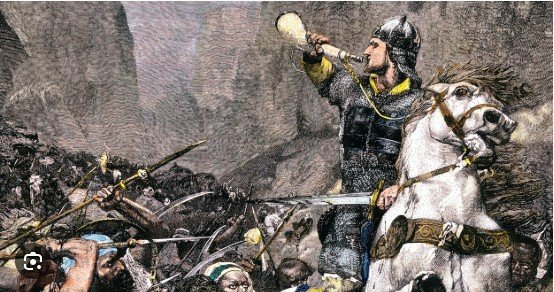Battle of Roncesvalles - Charlemagne vs. The Basques
In the year 778, one of the most famous battles in Spanish history shook the mountains of the Pyrenees—the Battle of Roncesvalles. It happened near a mountain pass in the Kingdom of Navarre, where the powerful King Charlemagne, leader of the Franks, was marching his army home after a campaign in Spain. But just as he thought he was safe, his soldiers were suddenly ambushed by fierce Basque warriors who knew the rugged land like the back of their hand.
Battle of Roncesvalles
The attack caught Charlemagne’s rear guard by surprise, and the result was a crushing defeat. Among the fallen was Roland, Charlemagne’s own nephew and one of his bravest commanders. Roland’s death was so dramatic and heroic that it inspired one of the greatest medieval epics ever written, The Song of Roland. This poem transformed him into a legendary knight, remembered for his loyalty, courage, and willingness to sacrifice everything for his king.
For Charlemagne, the defeat was more than just a loss of soldiers. It marked the end of his dream to expand deeper into Spain. Up until then, he had been winning victories, but the Basques’ resistance proved that not everyone would bow to his empire. Their victory showed the world that small, determined groups could stand up to even the most powerful rulers, and it was a reminder that the mountains of northern Spain were not easy to conquer.
The Battle of Roncesvalles didn’t just shape history—it shaped stories and legends that lasted for centuries. To this day, people remember it as more than a fight; it’s seen as a symbol of local resistance, of bravery against overwhelming odds, and of the clash of different cultures during the Middle Ages. When you hear the name “Roncesvalles,” you’re not just learning about a battle—you’re stepping into one of the most legendary moments of Europe’s past.

